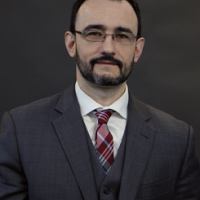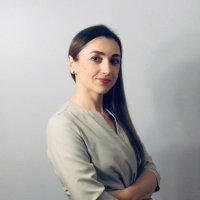The Russian War in Ukraine: The Situation After Two Weeks
The Russian Federation launched a war on Ukraine on February 24, 2022. This attack was unprovoked and continued the aggressive strategy that began in 2014 and continues Russia’s encroachment on Ukraine’s sovereignty. The Ukrainian army and people have shown tremendous resilience and the ability to resist, even as Putin's blitzkrieg was indiscriminate in the first days of the war. What is the situation on the ground today? How is the Ukrainian army defending Ukraine? How should political institutes and society act in the face of life-threatening risk?
Key Takeaways
- The Kremlin has not moved on since the initial occupation of Crimea in 2014. Russian troops were deliberately misled; they were told they would conduct exercises and not go to war. Russian forces drove into Ukraine as if they were still in their own country, not expecting much resistance from Ukrainians.
- Russia is also trying to keep the true nature of the war in Ukraine secret from the public through press censorship and criminal penalties for citizens who contradict the Kremlin’s messaging. This includes a ban on calling military actions in Ukraine as “war” or an “invasion,” instead referring to it as a “special operations.” Russian leadership figured they could avoid strict sanctions from the West if they conducted a quick, bloodless military operation. They did not reach the initial success they hoped for and were slammed with sanctions.
- Russian political objectives at this stage cannot be achieved, unless they substantially lower the bar. Both Russia’s failure and Ukraine’s success have come as a surprise. Putin has miscalculated by underestimating the ferocity and resilience of the Ukrainian army and people. Putin believes in his own version of history and suffers from information deficiencies, but he is not an irrational actor.
Selected Quotes
Olena Lennon on how Putin underestimated the strength of the Ukrainian national identity
“Given that the historical roots of Ukrainian identity, Putin had assumed that with proper military intimidation and with proper economic incentives and security incentives, people could be reconverted back to pro-Russia orientation and then pacifying populations would be easier and again, he miscalculated there because there’s a genuine buy-in among Ukrainians in terms of geopolitical orientation in Ukraine and civic identities as I said before. So, not only the resistance movement as we have seen so far already in places like Kherson and Melitopol that are currently under the Russian control. Unarmed civilians are actually coming out and protesting against Russian troops and this is probably not something that Putin had anticipated. Besides, there is a growing demographic of IDPs in Ukraine that were forced to move once and now they’re saying that they’re not willing to move again. This is the second time that Putin is forcing them to relocate and they’re strongly resisting this. So, again there is a new identity that I mentioned there where the former Donbas residents are actually very active participants in the fight. So, it seems as though, given the lack of buy-in on the part of the populations in Eastern Ukraine, in particular, it seems as though Russia might have to re-strategize because you will not be able to control these populations—these areas—without committing a significant military force to be able to pacify populations."
Michael Kofman: An overview of Putin’s miscalculations going into Ukraine
“It looks from the outset that while many, I think, expect at least those who are predicting the war like me, a large-scale Russian military operation in Ukraine, what Moscow actually attempted was a very puzzling operation. It was an effort at quick regime change. They actually hoped and expected to either overthrow Zelensky or get him to surrender within a matter of days. And so, the initial military operation, I think, defied many local expectations because it was essentially an effort to get troops quickly to the Ukrainian capital in Kyiv and to push forces down into Ukraine, not expecting much resistance. So, initial Russian forces went in, they didn’t go into sort of combined arms maneuver formations, expecting a fight. They’re trying to skirt around major cities and actually thinking they were going to avoid substantial resistance, they weren’t expecting the Ukrainian military to put up a fight. Now, well I think from our point of view, the planning assumptions may have been very puzzling but it’s very clear that intellectually I think the Kremlin had not moved on anywhere since 2014. They essentially were trying to do a much larger version of what had happened in 2014. And there are two other aspects to this operation.
The first is they clearly misled the troops. They did not tell the troops they were sending them to war until the very last minute. They told them were going on exercises, they pushed them to the border, told them not to worry, and then said that they are going to Ukraine but that this was actually a special operation and that they shouldn’t encounter much resistance. This is why, in the first 48 hours, if you saw the way Russian forces were operating, you too might have been very puzzled. Because Russians troops essentially drove into Ukraine as though they still were their own country—they weren’t expecting substantial resistance. They simply started driving down roads, they started driving down the small detachments, and I’m sure those illusions were shattered when they ran into the first Ukrainian checkpoint or ambush to find out that they were in a very real war. And, early on, most Russian military powers sat on the sidelines. For example, in the first week we had questions about the missing case of the Russian air force. The war started with several hours of cruise missile strikes and ballistic missile strikes. But Russian air force basically limited itself to small cases of close air support, meaning there was no major air campaigns. There are hundreds of Russian aircrafts sitting around Ukrainian airbases, hundreds of Russian combat helicopters, but in the early days are largely unused and it’s clear that in Moscow, they believed they could actually succeed in this operation early on without much of a fight—without having to employ this combat power.
I have two hypotheses as to why, the theory as to why they could get away with it. First, they’re trying to keep the war secret from the public, they called it a special operation in Donbas for a reason. In the initial week, they were not admitting this was a full-scale invasion of Ukraine. They were trying to keep it secret, in some ways, not similar from the ways they were keeping the fighting in 2014 and 2015 secret. They let on that there was some fighting but they were not trying to characterize the true nature of what they were attempting to do. And if they had used military power and air power in a large scale early on, those images might have been pretty difficult to control. And of course, they quickly shut down what was left of independent media, and they told everybody else that they couldn’t even call it war, literally, they had to call it a special operation.
The second part is that I think they hoped to avoid some of the worst sanctions from the West and I think they figured they could avoid them if they conducted a quick operation, they appeared relatively bloodless, and somehow, they sold themselves intellectually. And the fact that this was possible, I think a lot of that had to do with sort of the echo chamber assumptions inside Moscow—inside the political leadership.
So, they end up with the worst of all worlds. The initial operation was a failure and it was doomed to be a failure because its assumptions had little relationship to reality. Second, they got the worst of all the sanctions and even far more than they expected in the initial days. They did not reach initial operational success, they got a pretty bad bloody nose early on and took some substantial casualties, in the early part of the war. And, they completely seize the information domain by trying to keep it secret, so Ukraine, in fact, is winning across the board in terms of shaping the narrative and so are Western countries to support Ukraine. And, only recently have they tried to mobilize the Russian public now, in support of the war, realizing that they’re in a protracted conflict."
Mikhail Minakov: Which groups in Russia will be impacted by the sanctions?
“The question is who are the groups that are hit by these sanctions? So far, the most probable scenario that the blow is to the upper five—from five to twenty five percent of the population—while the people from smaller towns and from rural areas and from provincial Russia will be less impacted. And if that’s true, then there will be some support to Putin, or he can at least try to gather this support there. And, it could provide a regime with some legitimacy. However, it’s important that during this, during Putin’s rule, there were two social contracts. One with the population. 'You rank and file citizens, get your income for your household, and you will be economically well-off—in exchange for your political rights—and, you will be defended socially and from criminality.' Right now, this contract is most probably broken. There’s definitely, well maybe not as big as for the richer Russians, but there will be a blow on simple Russians, on middle class and the lower classes. And, this flow of criminality that is always connected with the military actions. So, it’s getting ruined there and also the contracts with the elites. Elites were not involved in this decision-making, and the sanctions are killing their wealth. You literally can see that every week, these Forbes List people, are losing half of their wealth and it seems to be continued—especially in those zones where they were bringing their capitals from Russia."
Speakers

Senior Fellow, Russia and Eurasia Program, Carnegie Endowment for International Peace

Adjunct Professor of Political Science and National Security, University of New Haven

Moderator

Hosted By

Kennan Institute
The Kennan Institute is the premier US center for advanced research on Eurasia and the oldest and largest regional program at the Woodrow Wilson International Center for Scholars. The Kennan Institute is committed to improving American understanding of Russia, Ukraine, Central Asia, the South Caucasus, and the surrounding region though research and exchange. Read more
